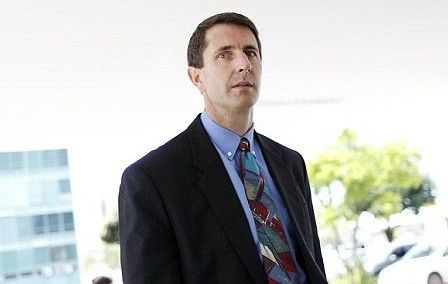Chevron, Transocean Execs Held In Brazil Over Oil Spill

Authorities in Brazil have detained 17 high-ranking executives of U.S. oil producer Chevron Corp. (NYSE: CVX) and drilling company Transocean Ltd. (NYSE: RIG) after a judge refused to let them leave the South American country pending possible criminal charges.
The travel ban was imposed as prosecutors prepare a criminal case against the companies and executives over their alleged role in deep-water oil spills last year and a second seepage last week, according to news reports.
In November, Chevron was blamed for an estimated 3,000-barrel spill in the Frade Field area off Rio de Janeiro state, prompting Brazilian authorities to suspend the company's drilling operations and bar it from access to fields believed to contain 100 billion barrels of oil.
Chevron, of San Ramon, Calif., already faces an $11 billion civil lawsuit related to the spills. In a statement, the company said: Any legal decision will be abided by the company and its employees. We will defend the company and its employees.
Chevron's Brazil operations chief, George Buck, was among the executives being detailed. According to Agence France-Presse, the group includes five U.S. nationals, five Brazilians, three Australians, two French citizens, a Canadian and a Briton. They can leave Brazil only with court approval, Judge Vlamir Costa of Rio de Janeiro state ruled Saturday.
According to legal analysts, the group will most likely be indicted for environmental crimes relating to the November leak, with a judge then ruling if the prosecutions would go ahead, the Wall Street Journal reported.
The move raises serious questions about Brazil's willingness to pursue the lucrative but risky business of offshore drilling. In recent years, the Brazilian economy has been buoyed by a number of massive offshore finds that have the potential to make the country one of the world's biggest oil exporters.
But the sight of international oil executives being held may dampen efforts to exploit the huge offshore assets, with international oil companies demanding higher premiums or pulling out altogether.
The latest leak has also raised questions over the complexity of deep-water drilling in Brazil.
Unlike with BP PLC's spill in 2010 off the U.S. Gulf of Mexico coast, blamed on faulty drilling following a rig explosion, the Chevron leak was caused by cracks in the seabed, suggesting a far trickier drilling environment than previously thought. Chevron said last week that it had stopped pumping oil from the 61,000-barrel-per-day Frade field because of the leak.
© Copyright IBTimes 2024. All rights reserved.




















